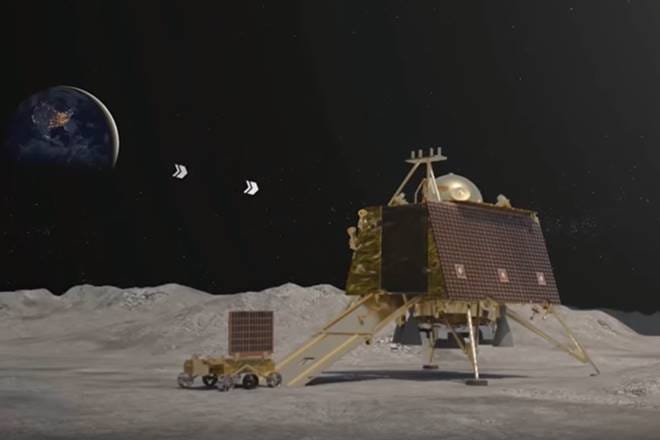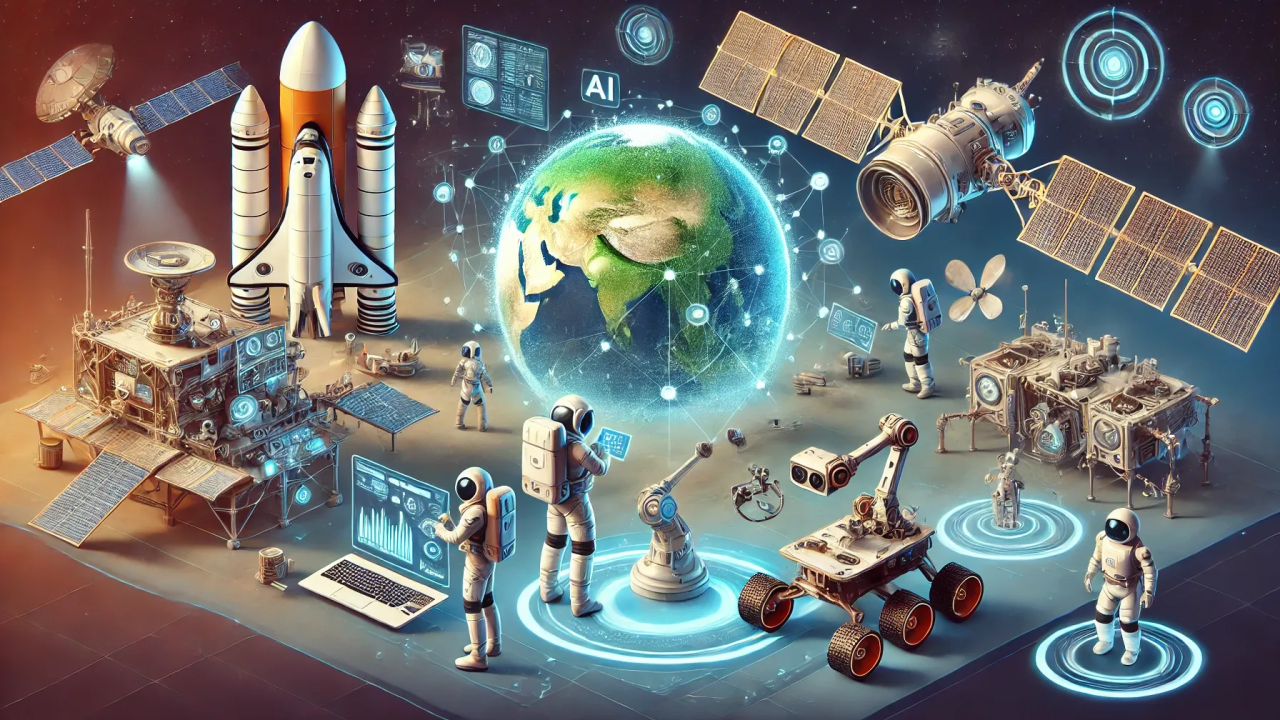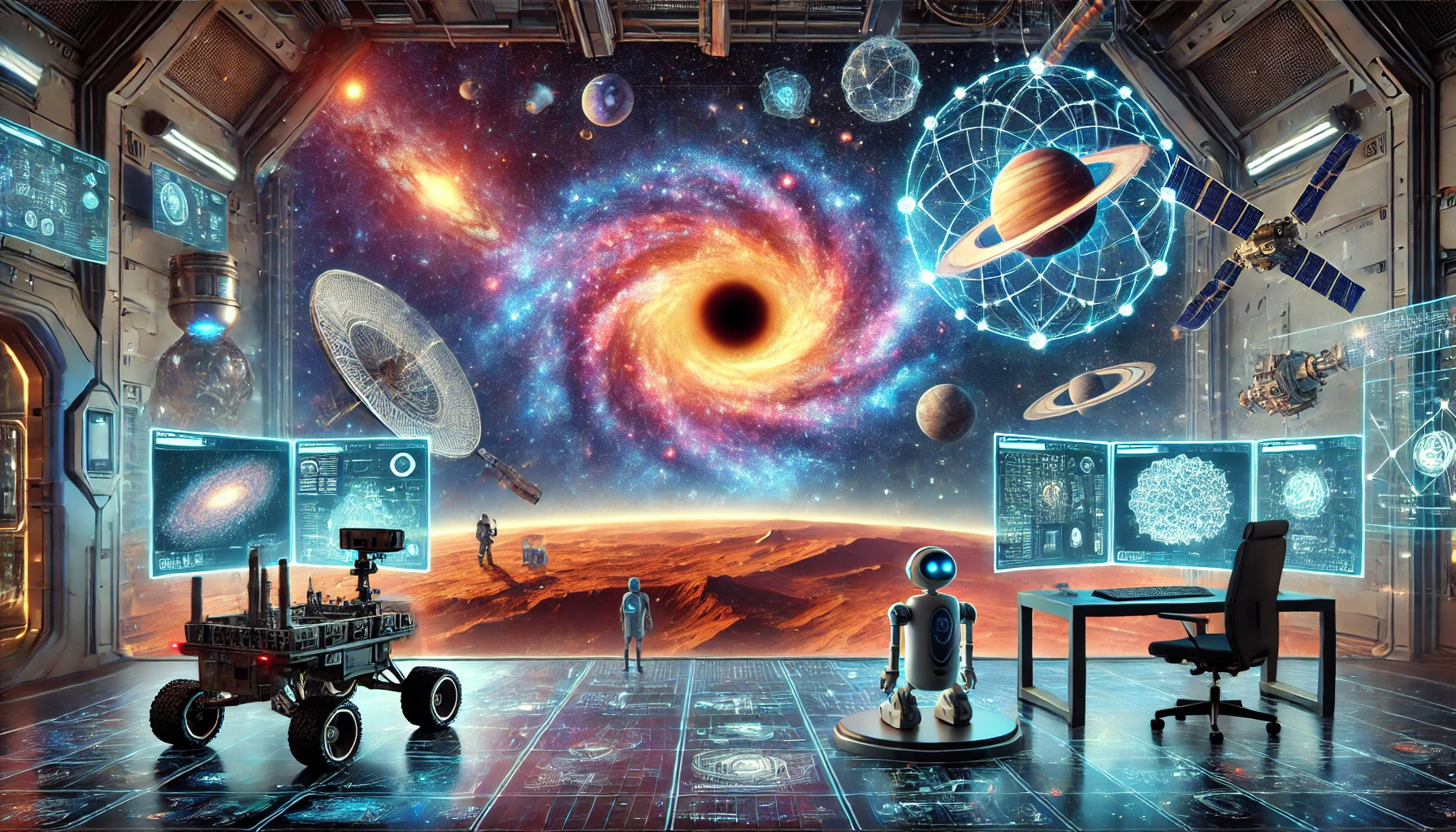Artificial Intelligence (AI) is playing an increasingly important role in advancing space exploration and satellite technology. Understanding the tools that power AI applications in space helps us appreciate how machines are transforming our ability to explore the universe.
What is AI in Space?
AI in space involves using intelligent algorithms and autonomous systems to support missions, analyze astronomical data, manage spacecraft, and solve complex challenges beyond Earth.
How AI Works in Space Exploration
AI systems process enormous datasets from satellites, telescopes, and spacecraft. These tools help automate decision-making, optimize mission paths, detect patterns in cosmic data, and even manage spacecraft systems in real time without human intervention.
Top AI Tools and Technologies Used
Robotic Process Automation (RPA): Supports autonomous spacecraft operations and maintenance.
Machine Learning Models: Analyze space imagery, predict equipment failures, and improve navigation systems.
Computer Vision: Processes high-resolution images from space to detect objects, map planetary surfaces, and monitor changes.
Natural Language Processing (NLP): Assists in communication and real-time data interpretation for mission control.
Autonomous Navigation: Enables rovers and satellites to make decisions independently in unfamiliar environments.
Benefits of AI in Space
AI improves mission efficiency, enhances safety through predictive maintenance, enables faster data analysis, and supports deep-space exploration with minimal human intervention.
Challenges and Considerations
AI tools require precise training, reliable data sources, and thorough testing to function correctly in unpredictable space conditions. Human oversight is still essential to manage AI-driven missions.
Conclusion
AI is revolutionizing space technology by making exploration smarter and more efficient. With the right tools, AI can help scientists push the boundaries of what is possible in space while ensuring mission success and safety.Tools







Leave feedback about this